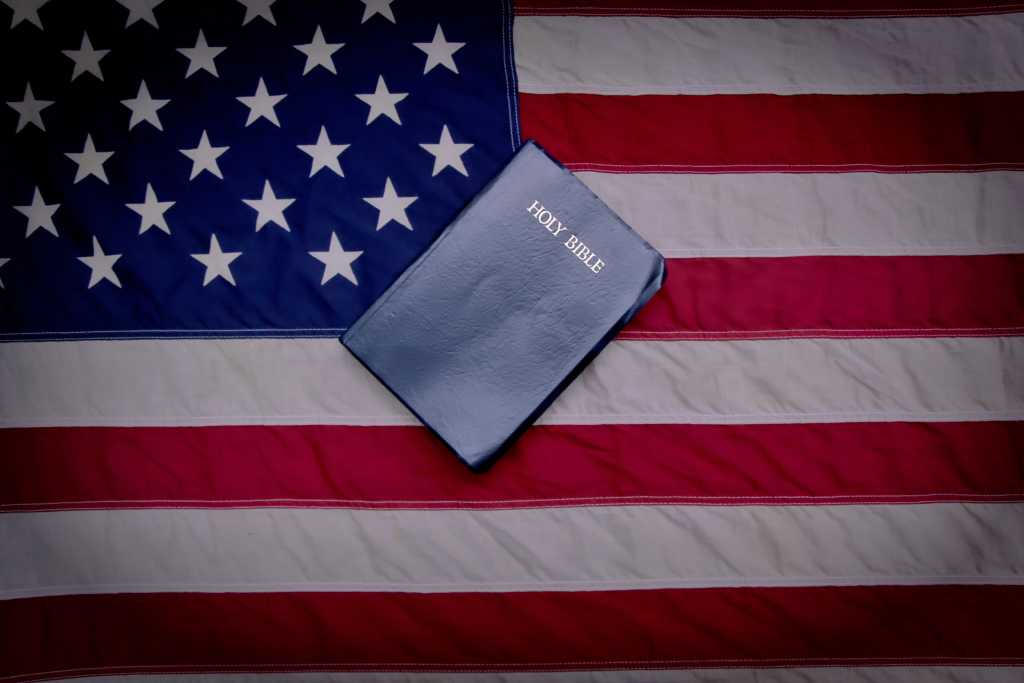A new California bill would allow state officials to ban the Bible as anti-LGBT material, says Dr. Robert Gagnon in his latest for The Federalist. Slamming false “fact-checking” reports by progressive watchdog Snopes and FactCheck.org, Dr. Gagnon points out the the bill’s contents are dangerously ambiguous, posing a major potential threat to religious freedom.
New Bill Banning Biblical Views on Sexual Identity Forces Ministry to Shut Down Conference
Faithwire recently reported on California Assembly Bill 2943, which seeks to ban materials (such as books and videos) and organized events that preach against homosexuality or transgenderism from the state. The bill prompted Christian outreach organization Summit Ministries to cancel their upcoming conference at Biola University outside of Los Angeles, as it promotes biblical views regarding marriage.
Randy Thomasson, president of SaveCalifornia.com, explained that AB 2943 seeks to ban money from being exchanged for “sexual orientation change efforts.” It provides “no exemption for religious institutions or religious material.”
Thomasson told CBN News that the bill’s protections could possibly include the sale of Bibles.
But in an April 25 piece titled, “California Bill Wouldn’t Ban the Bible,” FactCheck.org writer Angelo Fichera claims that AB 2943 would not affect the sale of Bibles or of any Christian book that argues in favor of LGBT orientation, behavior or identity change.
Fichera asserts that that claims about the bill banning religious books “are indeed not supported by the language in the legislation.” But as Gagnon notes, Fichera fails to cite any evidence from the bill itself to back his argument.
“The extent of his ‘research’ is to cite a tweet from the bill’s author, California assemblyman Evan Low, and an email from attorney Anthony J. Samson, a registered state lobbyist who ‘provided Low with technical assistance on the bill,’” writes Gagnon.
Low and Samson are “hardly impartial sources,” that “have a vested interest in getting the bill passed into law before massive opposition can galvanize.” Despite this, Fichera failed to even fact-check their claims with the actual language of AB 2943, even though the wording of the bill is what will ultimately determine its legal enforcement.
In his article, Gagnon does what he says Fichera failed to do — provide a thorough (almost line-by-line) account of the bill’s language, and then match it up with the claims of the bill’s author and attorney.
According to the text of AB 2943, “any practices that seek to change an individual’s sexual orientation” will be considered “unlawful.” Gagnon notes that the broad term “any practices” could absolutely encompass the sale of books promoting biblical views on sexuality, including the Bible.
“You might suppose that AB 2943 has restraints on its application to avoid encroachments on freedoms of speech and religion,” he continues. “You would be wrong.”
Because the bill addresses efforts that occur in the context of a “transaction intended to result, or which results, in the sale or lease of goods or services to any consumer,” there would be no special protection for the sale of even the Bible.
Backed by the bill’s actual wording, Gagnon proceeds to tear down false claims that the proposed law would only apply to “mental health professionals and not also to religious organizations or individuals,” or that “sexual orientation change efforts” only encompasses efforts “to eliminate or reduce sexual or romantic attractions or feelings toward individuals of the same sex.”
Perhaps most shockingly, Gagnon points out that a monetary transaction wouldn’t even have to take place before the bill’s penalty could be applied:
Also prohibited by this bill is “advertising, offering for sale, or selling a financial product that is illegal.” Merely advertising (e.g., on one’s Facebook page or some other Internet site) or offering for sale (e.g., on a table at a conference, regardless of whether copies are sold) “a financial product” that advocates a change of attractions, behavior, or gender expression away from the “LGBTQ” mantra is fair game.
“Thus,” he writes, “any conference or lecture would apply if a fee is charged for attending or if ‘goods or services’ are advertised or made available in the course of the ‘event.’ Indeed, I can’t see why this wouldn’t also apply to a course offered at a college or seminary if tuition is charged for that course.”
Gagnon concludes:
Either Low and Samson are deliberately misrepresenting matters to secure passage of this bill, or they have ignorantly constructed one of the most poorly worded bills imaginable. Whichever answer one goes with, the end result is the same: AB 2943 does not exempt from state action any oral or written communications associated with a monetary transaction that convey, in whole or part, that people should stop engaging in homosexual practice or expressing themselves as a gender at odds with their biological sex established before birth.
In short, the bill opens up all kinds of possibilities for egregious violations of religious freedom, and the “fact-checkers” at FactCheck.org are telling the public that their fears are completely unfounded.
FactCheck.org is one of several organizations working with Facebook to prevent “fake news” from circulating on the social media platform, which makes Fichera’s error all the more alarming.



